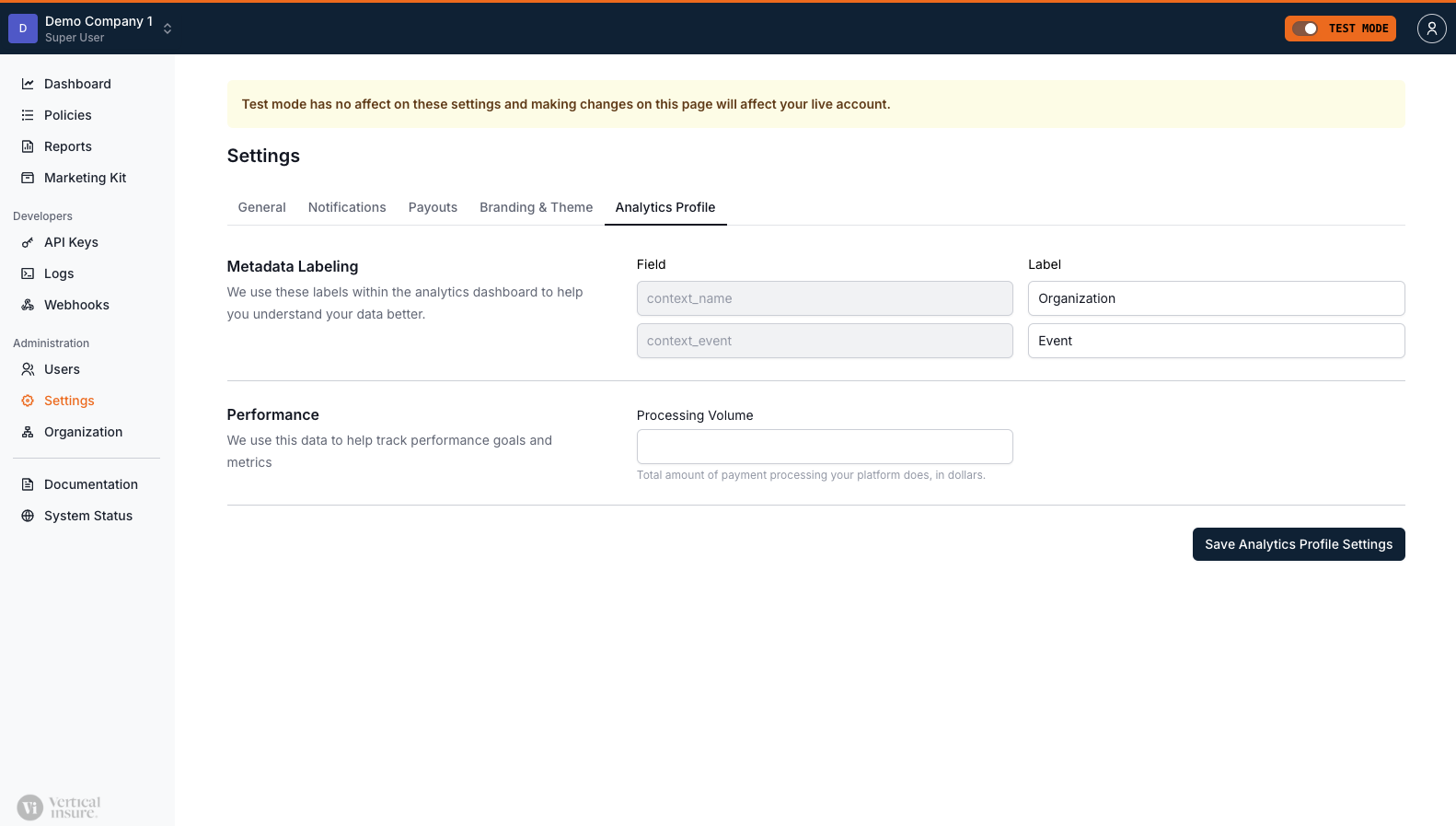Client Insights & Metadata
Metadata can help your platform improve on a number of operational needs for your business such as
- Improving retention for customers purchasing insurance policies.
- Driving analytical decisions on how your platform is presenting insurance offers.
- Tracking which feature flags were active within your customer workflow during the insurance purchase process.
Metadata fields can be sent with any request on our Quote and Purchase endpoints. For use of metadata within our Embedded Offer, see the Embedded Offer Usage documentation for an example.
Core metadata fields
You can supply any metadata fields you want. These fields will be available as columns in your monthly payout reports, as well as visible on the policy page within the Partner Portal. However, we do offer 2 core metadata fields which can provide you certain business metrics within the Partner Portal.
context_name
This is typically the name of the organization or merchant within your platform. This field, if supplied, is also used in emails regarding policy purchases we send to end-users.
Examples
- If you are hosting a registration for youth baseball, the
context_namecould be the name of the sports club. - If you are selling concert tickets through your platform, the
context_namecould be the name of the venue. - If you are an event planning platform that supports weddings, this could be the name of the wedding venue that is hosting the wedding, or the event planner that is planning the wedding.
context_event
This is typically the event for which an end-user is purchasing insurance.
Examples
- If you are selling concert tickets through your platform, the
context_eventcould be the date and name of the band performing. - If you are hosting a registration for youth baseball, the
context_eventcould be "12 and under youth baseball"
Analytics
Viewing analytics related to purchasing and quoting is currently available within your Partner Portal dashboard and allows you to drill down into metrics from your platform based on the previously mentioned core metadata fields.

Labeling Analytics
We understand that not everyone uses the same language with regard to our customers. We allow you to label your metadata fields to fit the language your team uses when referring to customers and products sold on your platform.
